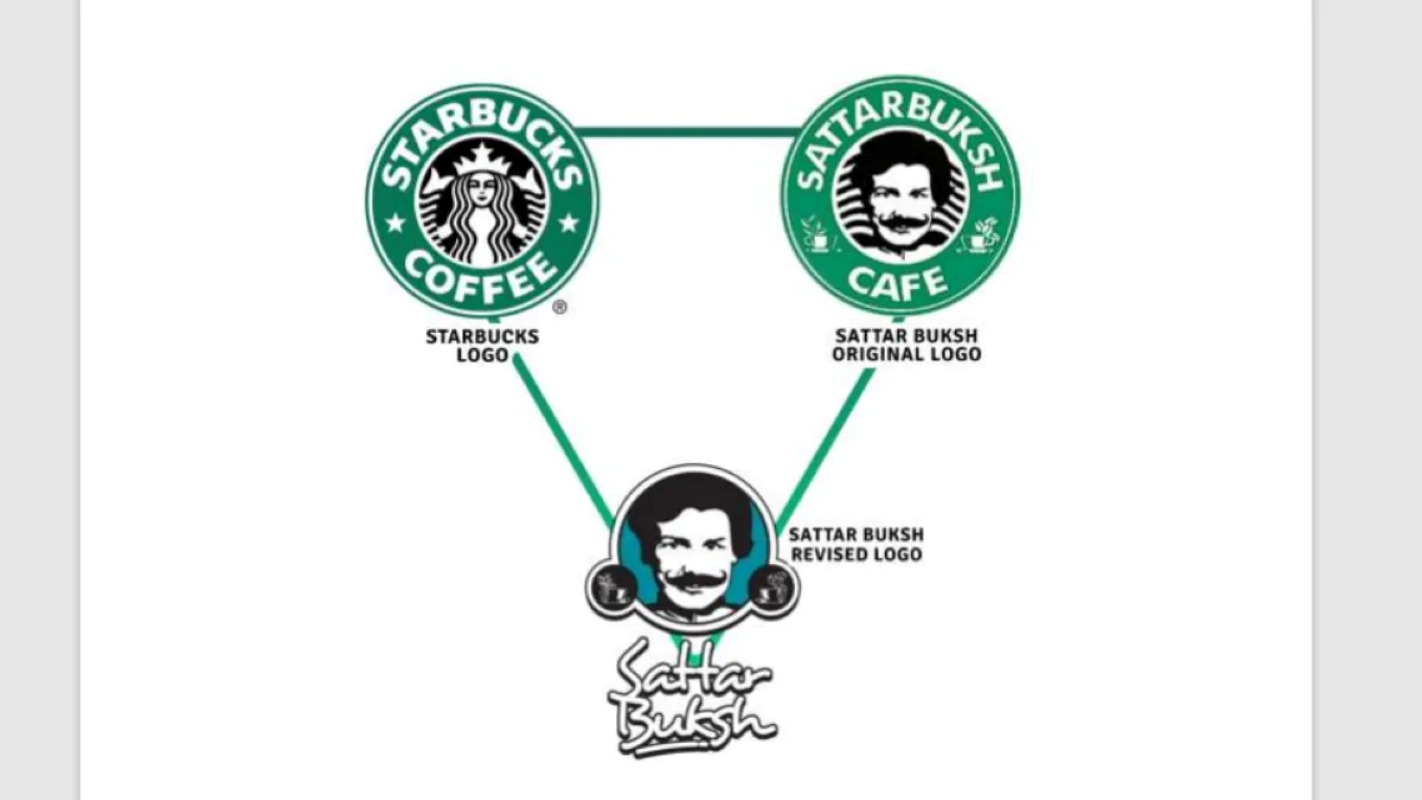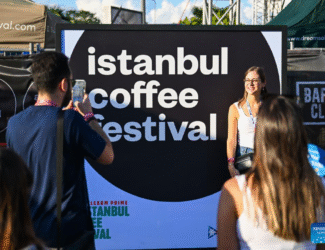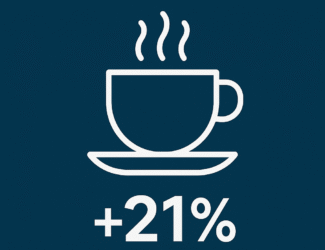
“Star Bux” Defeats Starbucks After 12-Year Legal Battle
Karachi – September 14, 2025 – Qahwa World – In a remarkable conclusion to one of the most unusual brand disputes in the coffee industry, a Pakistani café named “Star Bux” has won a 12-year-long legal battle against the global coffee giant Starbucks. The verdict, delivered by the Pakistani court, has not only ended a prolonged legal fight but has also raised important questions about culture, identity, and the limits of trademark law.
The story began in 2013 when Rizwan Ahmed and Adnan Yousuf opened a café in Karachi under the name “Star Bux.” The café’s logo immediately drew attention for its playful resemblance to Starbucks. Instead of the familiar mermaid encircled in green, “Star Bux” featured the face of a mustached man inside a circular green emblem. This visual and phonetic similarity sparked widespread discussion, with some finding it amusing while others considered it too close for comfort. Starbucks, which had not yet opened outlets in Pakistan, quickly filed a complaint, arguing that the café’s identity could mislead consumers and weaken its globally recognized brand.
Starbucks based its case on the established international framework of trademark protection, insisting that “Star Bux” could cause confusion among customers who might assume a link between the two businesses. The company argued that such similarities represented trademark dilution and could undermine the uniqueness of its brand image, even if customers were not directly deceived. The stakes were high: Starbucks was protecting one of the most famous brands in the world, while “Star Bux” defended its right to local identity and creative expression.
The café’s founders, however, presented an unusual but powerful defense. They claimed their brand was not an imitation but a form of parody. According to them, the choice of name and logo was meant as a cultural and humorous statement, not an attempt to deceive customers or steal market value. They highlighted the differences in fonts, artistic styles, and even the character at the center of their logo—a mustached man instead of a mythical figure. Their menu also went beyond coffee, featuring burgers, pasta, pizza, and even items with humorous names inspired by Pakistani culture, underscoring their effort to create a distinct identity rather than a copy of Starbucks.
Over time, the café made small adjustments to its visual identity to further reduce similarities, while adding disclaimers clarifying that it had no connection to Starbucks. These changes reinforced the claim that “Star Bux” was a parody brand rooted in local culture and humor. What might have started as a playful idea eventually turned into a cultural symbol, attracting attention on social media and sparking debates on intellectual property and creative freedom.
After years of hearings and legal back-and-forth, the court finally ruled in favor of the Karachi café. The judge recognized parody as a legitimate form of artistic and cultural expression under Pakistani law, stating that it did not constitute a violation of trademark protections. The ruling emphasized that there were enough visual and conceptual differences between the two brands to prevent real confusion among consumers, and that global corporations must also recognize the role of local culture and creativity.
The outcome represents a rare victory for a small business against a multinational powerhouse. The case has sparked international debate on how far trademark protections should extend, and whether global companies should always be allowed to enforce their rights in markets where local culture gives rise to parody and satire. It also highlights the importance of consumer perception: whether people truly believe two brands are connected, or whether they can recognize parody as parody.
The story of “Star Bux” is no longer just about a trademark dispute. It has become an emblem of how cultural identity and humor can challenge global corporate dominance. By winning this case, the café has established itself as more than a local business—it is now a symbol of resilience, creativity, and the power of parody to stand up to one of the world’s most influential coffee brands.
Twelve years after the first complaint, “Star Bux” has proven that even the smallest businesses can win against global corporations when their case is rooted in originality, culture, and authenticity. This legal battle will be remembered not only as a fight over names and logos but as a story about how creativity, humor, and local heritage can triumph over corporate might.






